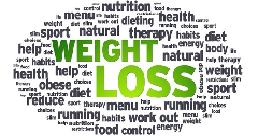In order to take care of a horse, you must know what it is that they should eat. On the flipside, it's of the utmost importance to know what isn't good for them. These are just a few aspects of equine nutrition to be mindful of. For new horse owners, there are ways to get them the nutrients that they require from day to day. Here are 4 tips that will cover what you need to know, PEMF therapy for horses included.
To start off, water should be a focal point for pet owners. For those that don't know - and authorities on pain management like Assisi Animal Health will agree - a horse can consume up to 10 gallons of water per day. What this means is that a healthy water source should always be present. Equine health is made up of many moving parts, but it can be argued that water holds the utmost importance in the matter.
Next, every horse should have access to protein, which is one of the most important building blocks of health. As a matter of fact, without this nutrient, a horse will not be able to build muscle or even maintain what it already has. Furthermore, it can result in joints and muscles becoming achy. One can argue that electromagnetic therapy for horses can be used for this purpose, but it may be wise to consult your veterinarian to learn more.
Next, let's discuss specific vitamins that horses need. Vitamins A and E seem to be the most important, seeing as how equine cannot produce them on their own. This is why hay is one of the common elements of any horse's diet. You won't have to worry about vitamin C, however, as horses can synthesize this on their own. These are just a few things that you should know about vitamins, as they relate to equine nutrition.
Now that you have a general understanding of equine nutrition building blocks, it might be worth covering the topic of treats. Dogs and cats are often given these, but did you know that they can be given to horses as well? Some products are better than others for this reason, too. Fruits and vegetables like apples, strawberries, and celery are safe. Sugar and hay cubes are good to use, provided they aren't given in large amounts. Simply put, don't place too much focus on treats. They may interfere with a nutrient-rich diet.
To start off, water should be a focal point for pet owners. For those that don't know - and authorities on pain management like Assisi Animal Health will agree - a horse can consume up to 10 gallons of water per day. What this means is that a healthy water source should always be present. Equine health is made up of many moving parts, but it can be argued that water holds the utmost importance in the matter.
Next, every horse should have access to protein, which is one of the most important building blocks of health. As a matter of fact, without this nutrient, a horse will not be able to build muscle or even maintain what it already has. Furthermore, it can result in joints and muscles becoming achy. One can argue that electromagnetic therapy for horses can be used for this purpose, but it may be wise to consult your veterinarian to learn more.
Next, let's discuss specific vitamins that horses need. Vitamins A and E seem to be the most important, seeing as how equine cannot produce them on their own. This is why hay is one of the common elements of any horse's diet. You won't have to worry about vitamin C, however, as horses can synthesize this on their own. These are just a few things that you should know about vitamins, as they relate to equine nutrition.
Now that you have a general understanding of equine nutrition building blocks, it might be worth covering the topic of treats. Dogs and cats are often given these, but did you know that they can be given to horses as well? Some products are better than others for this reason, too. Fruits and vegetables like apples, strawberries, and celery are safe. Sugar and hay cubes are good to use, provided they aren't given in large amounts. Simply put, don't place too much focus on treats. They may interfere with a nutrient-rich diet.
About the Author:
Please visit Assisi Animal Health for more information regarding what you have just read.
